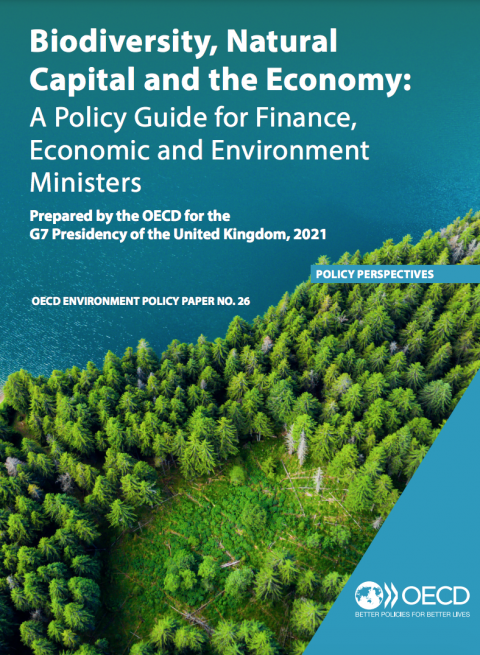Biodiversity, Natural Capital and the Economy: A Policy Guide for Finance, Economic and Environment Ministers

Document Summary:
Biodiversity underpins all economic activities and human well-being. It provides critical life-supporting
ecosystem services, including the provision of food and clean water, but also largely invisible services such
as flood protection, nutrient cycling, water filtration and pollination. Yet humanity is destroying natural
capital at an unprecedented rate, posing significant but often overlooked risks to the economy, the financial
sector and the well-being of current and future generations. The emergence of infectious diseases such
as COVID-19, of which land-use change and wildlife exploitation are key drivers, is just one example of
the various risks associated with humanity’s mismanagement of natural capital.
As Professor Sir Partha Dasgupta’s Review notes, we have failed to manage our global portfolio of assets
sustainably, accumulating produced (physical) and human capital largely at the expense of our most
important asset – natural capital. Our dominant development paradigm, narrowly focused on GDP growth,
is not sustainable. While global GDP per capita increased by more than 60% between 1992 and 2014,
natural capital stocks per capita declined by nearly 40%, undermining future economic growth and
well-being. One million plant and animal species now face extinction. This is in part due to the
characteristics of nature that make it easy to ignore: largely silent, invisible and mobile. These
characteristics result in nature being undervalued or unvalued in markets, and mean that our impacts on
nature largely go unaccounted for. The current imbalance between our demands on nature and its capacity
to regenerate urgently needs to be addressed.
The UK’s 2021 G7 Presidency comes at a crucial juncture. Strong leadership from the G7, through
ambitious domestic action and international co-operation, is critical to address the multiple, interlinked
crises we face: biodiversity loss, climate change, novel infectious diseases and their severe consequences
for human well-being and the economy. G7 countries have an opportunity to drive change, with trillions of
dollars mobilised through COVID-19 recovery packages, and UN CBD COP15 (where the post-2020
Global Biodiversity Framework will be adopted) and UNFCCC COP26 on the horizon. This Policy Guide,
prepared by the OECD at the request of the UK G7 Presidency, is intended for Leaders as well as Finance,
Economic and Environment Ministries. Based on the urgent case for action on biodiversity put forward in
the Dasgupta Review (2021) and the OECD’s 2019 report to the G7 Environment Ministers, among others,
it provides the latest findings and policy guidance in four key areas: measuring and mainstreaming
biodiversity; aligning budgetary and fiscal policy with biodiversity; embedding biodiversity in the financial
sector; and improving biodiversity outcomes linked to international trade.
Link to an External Document:
